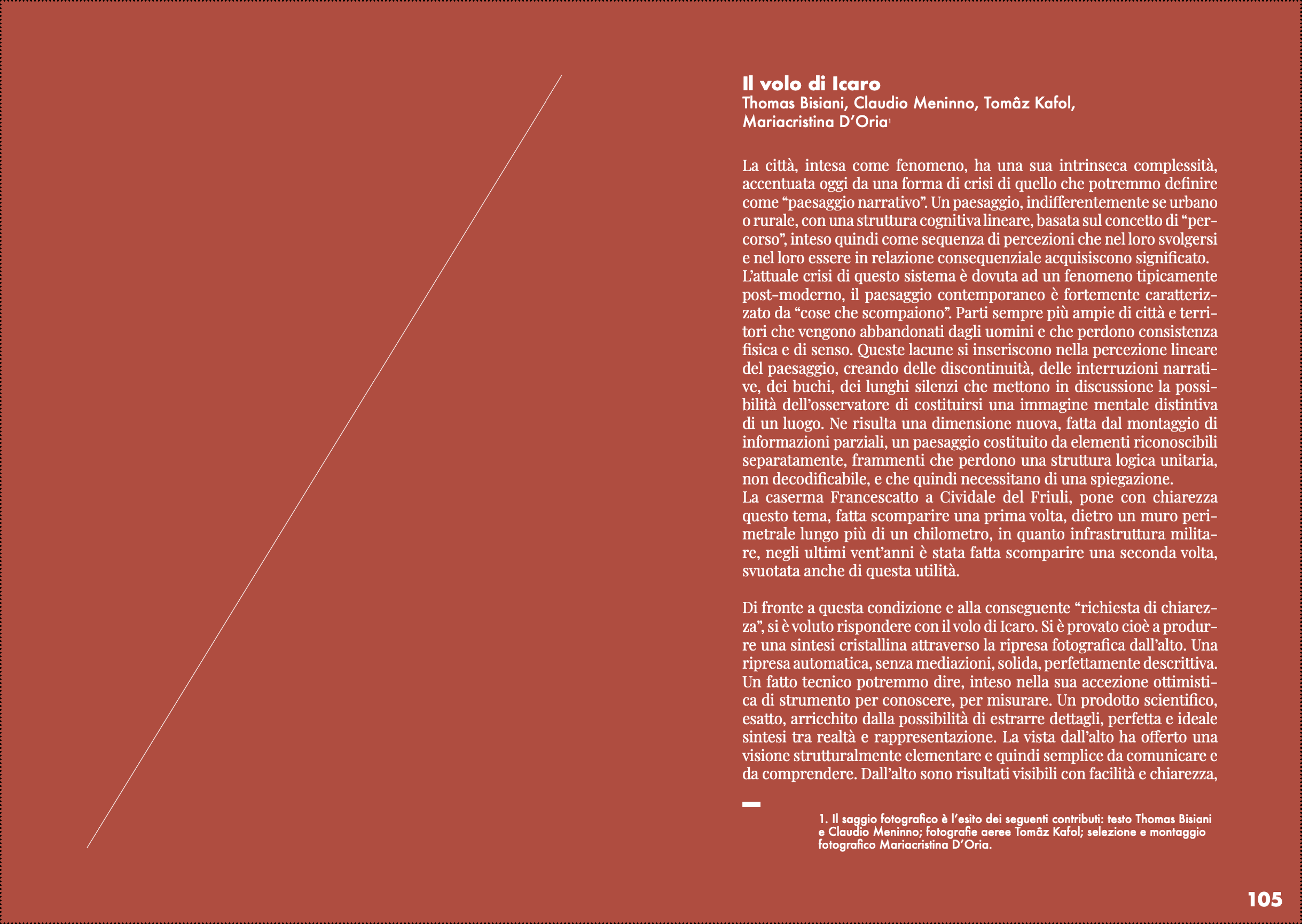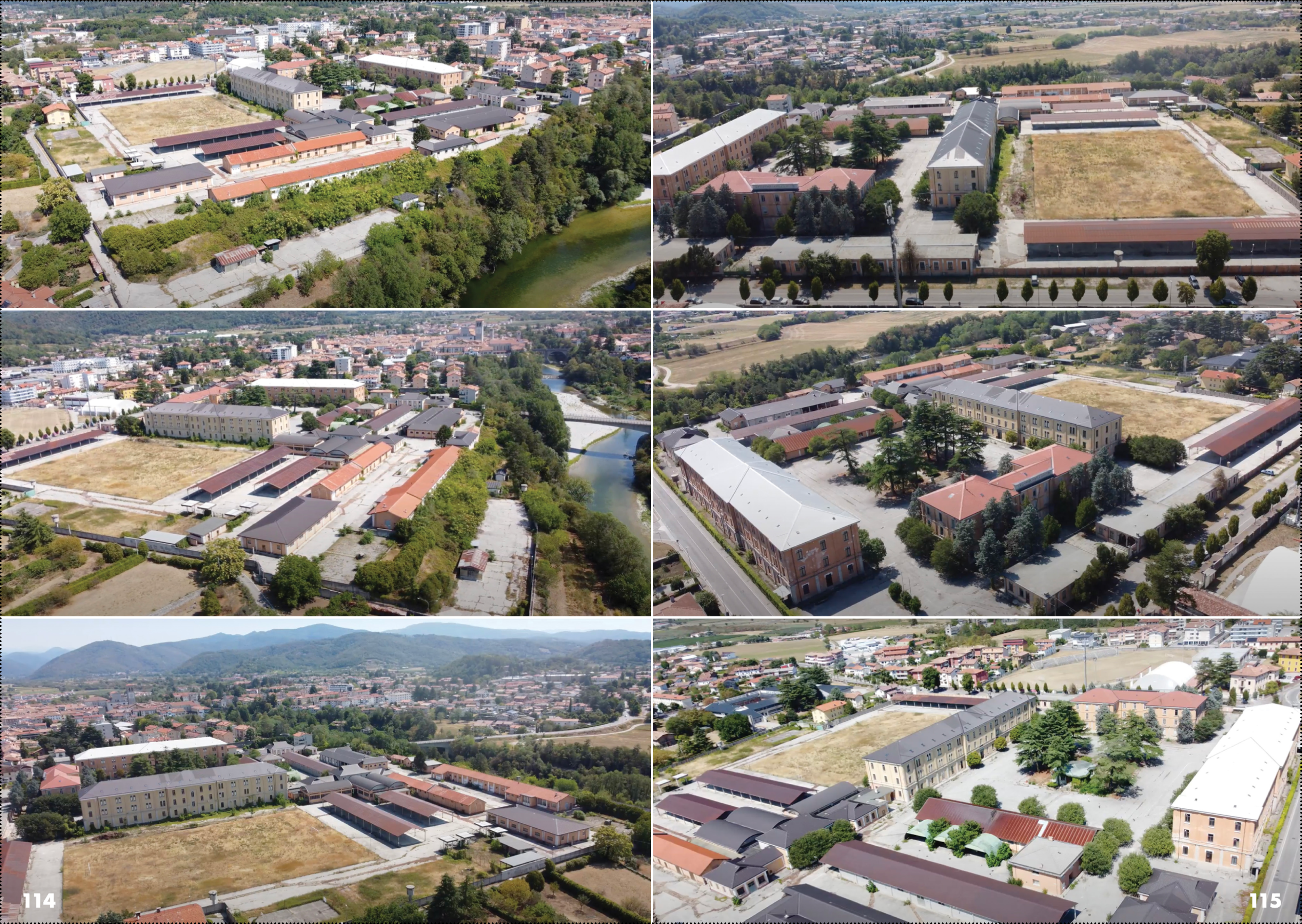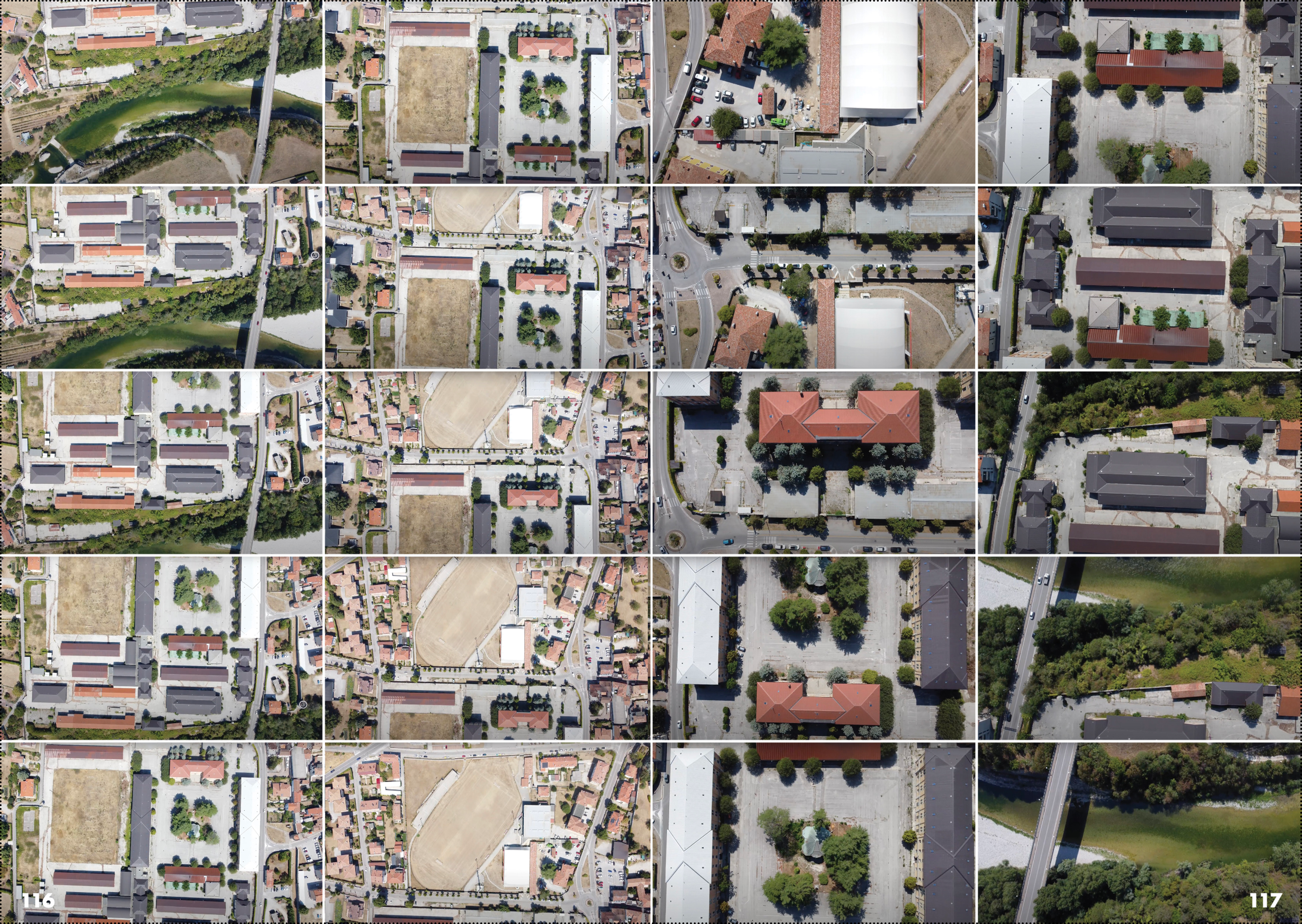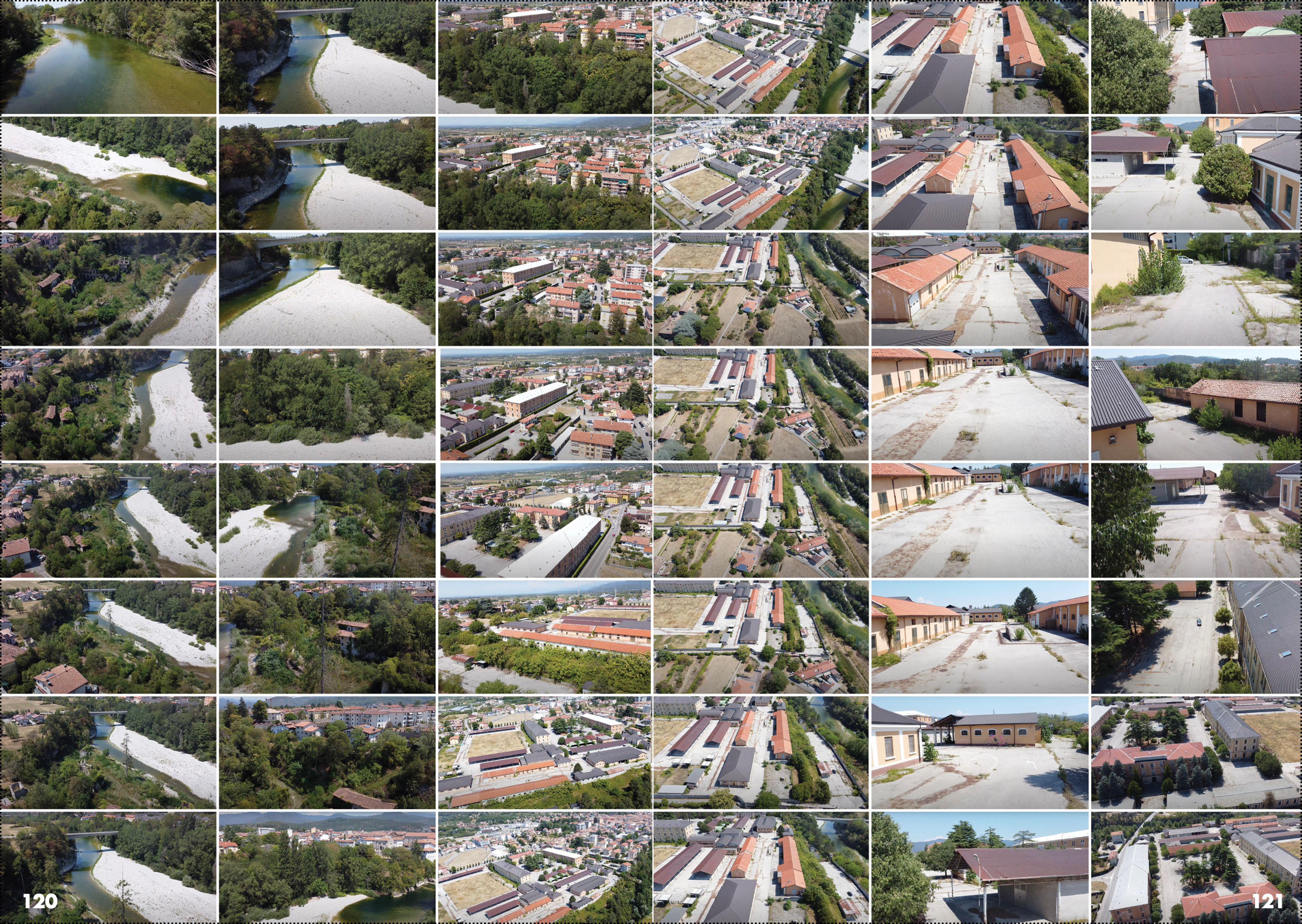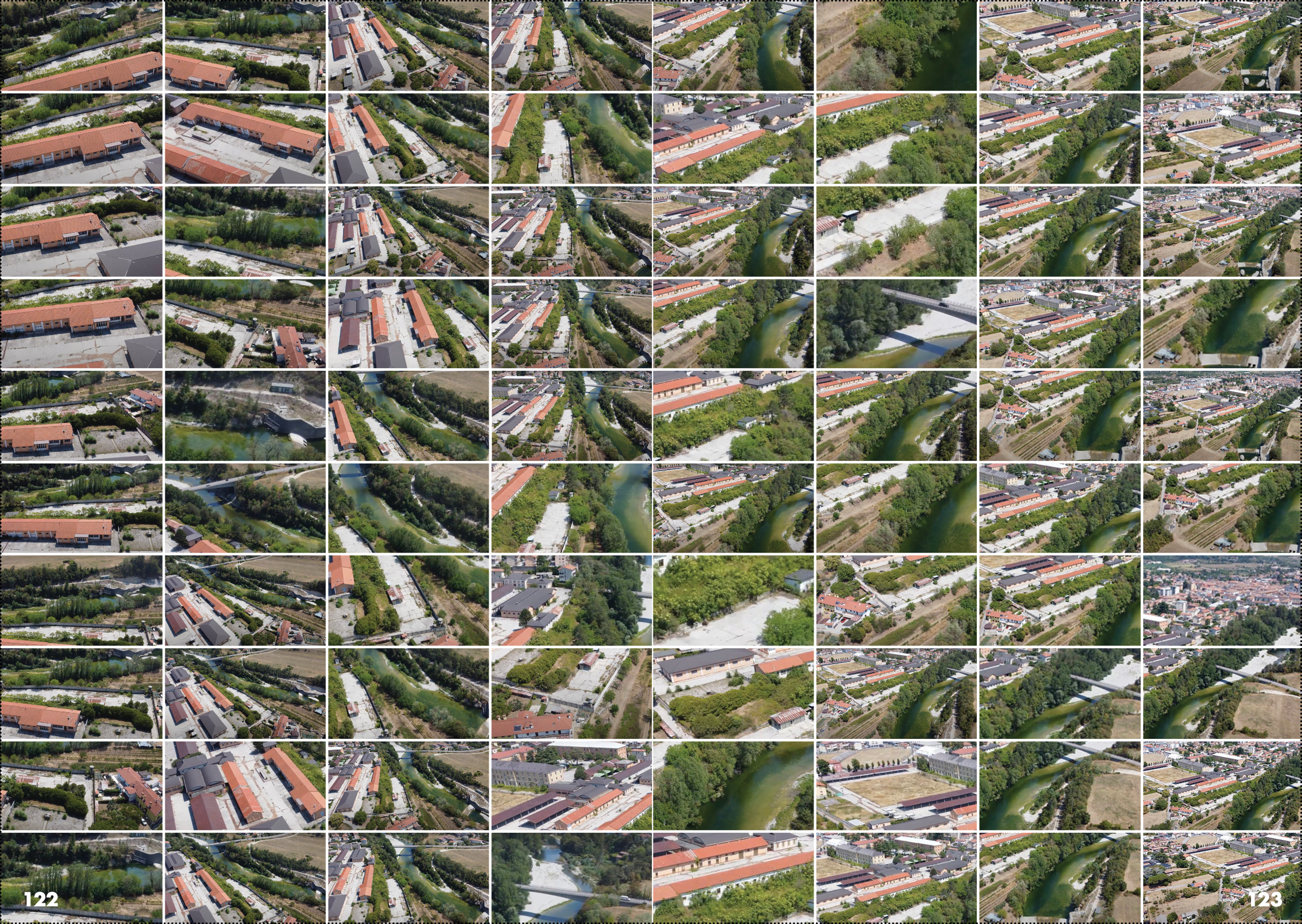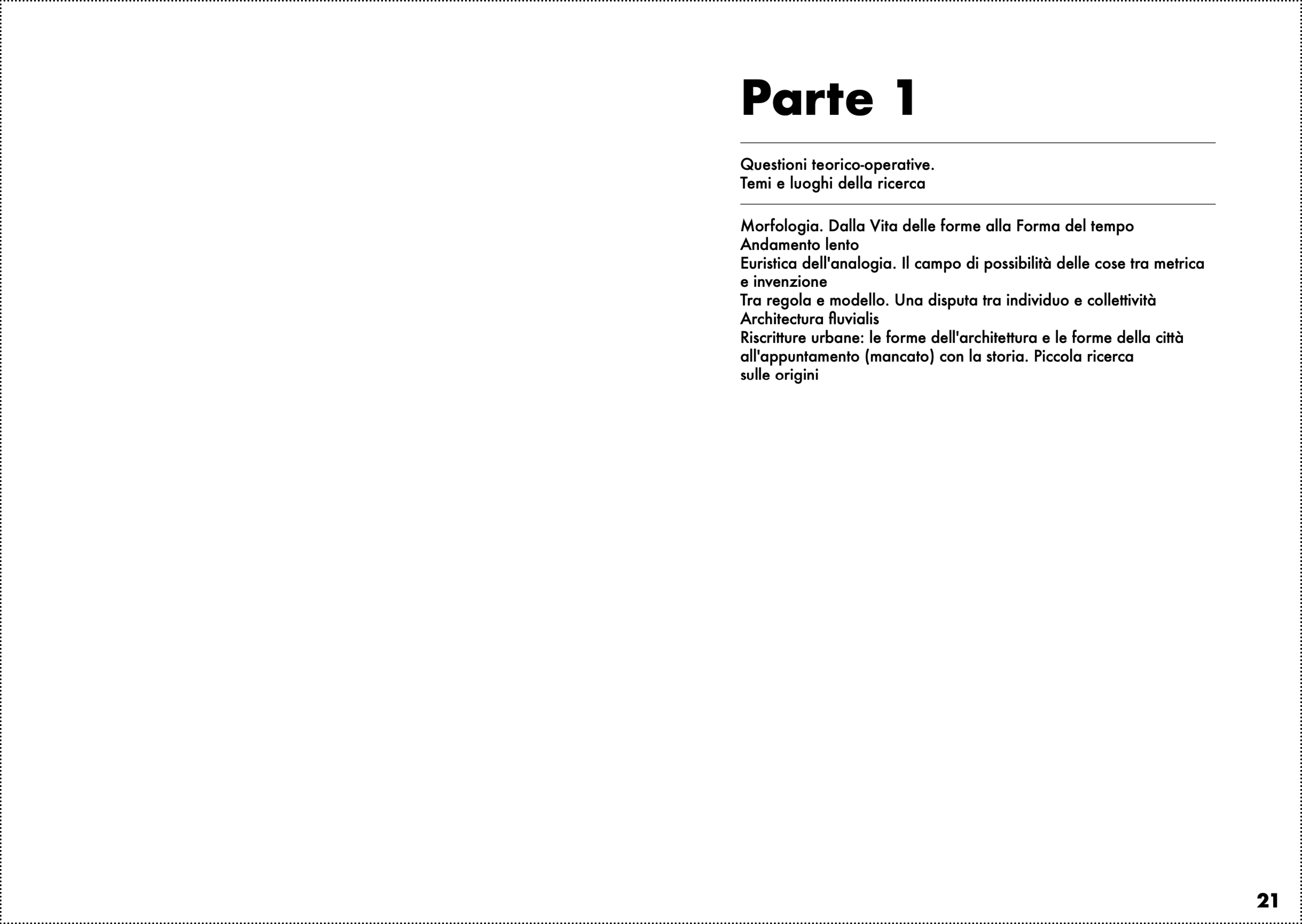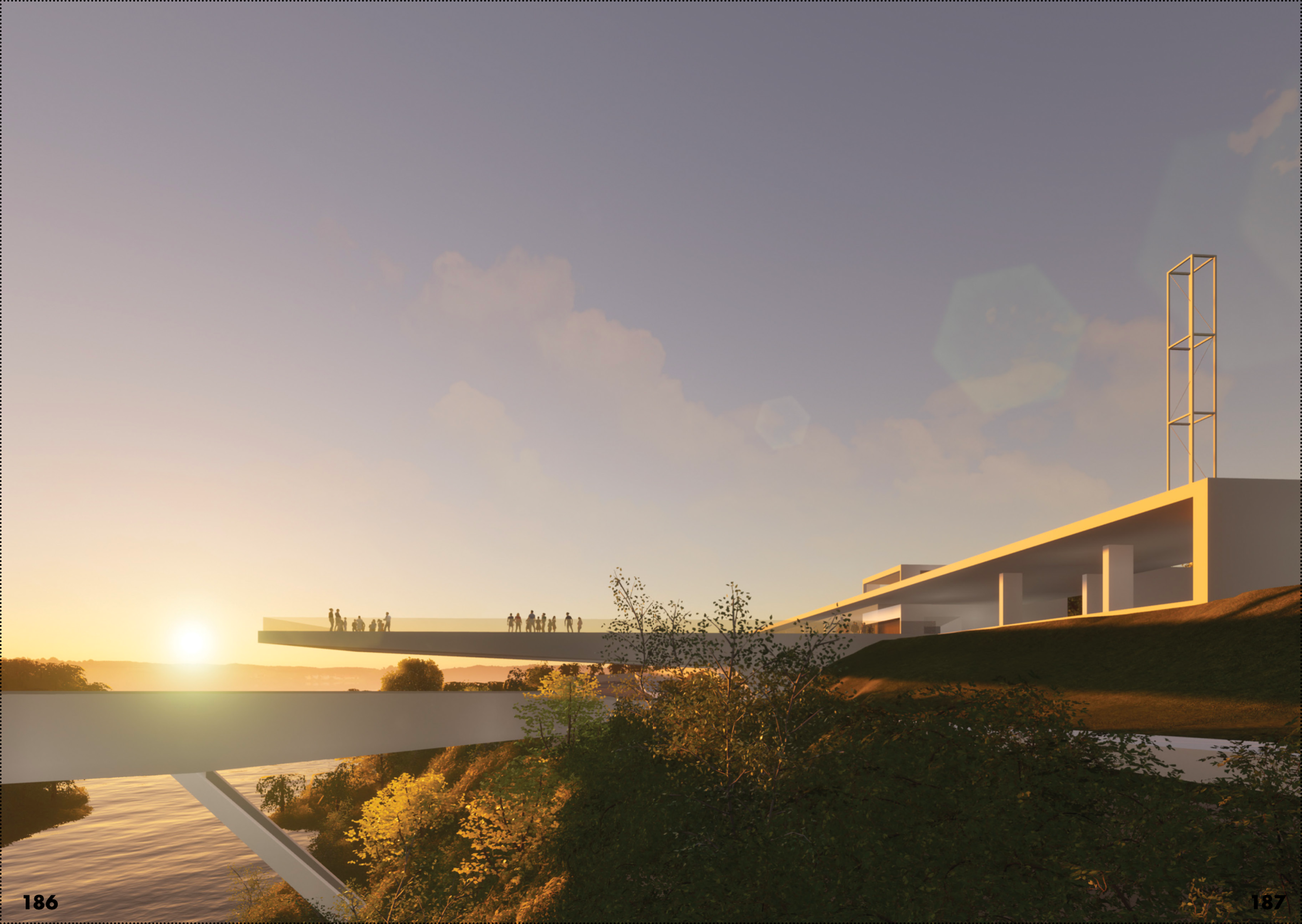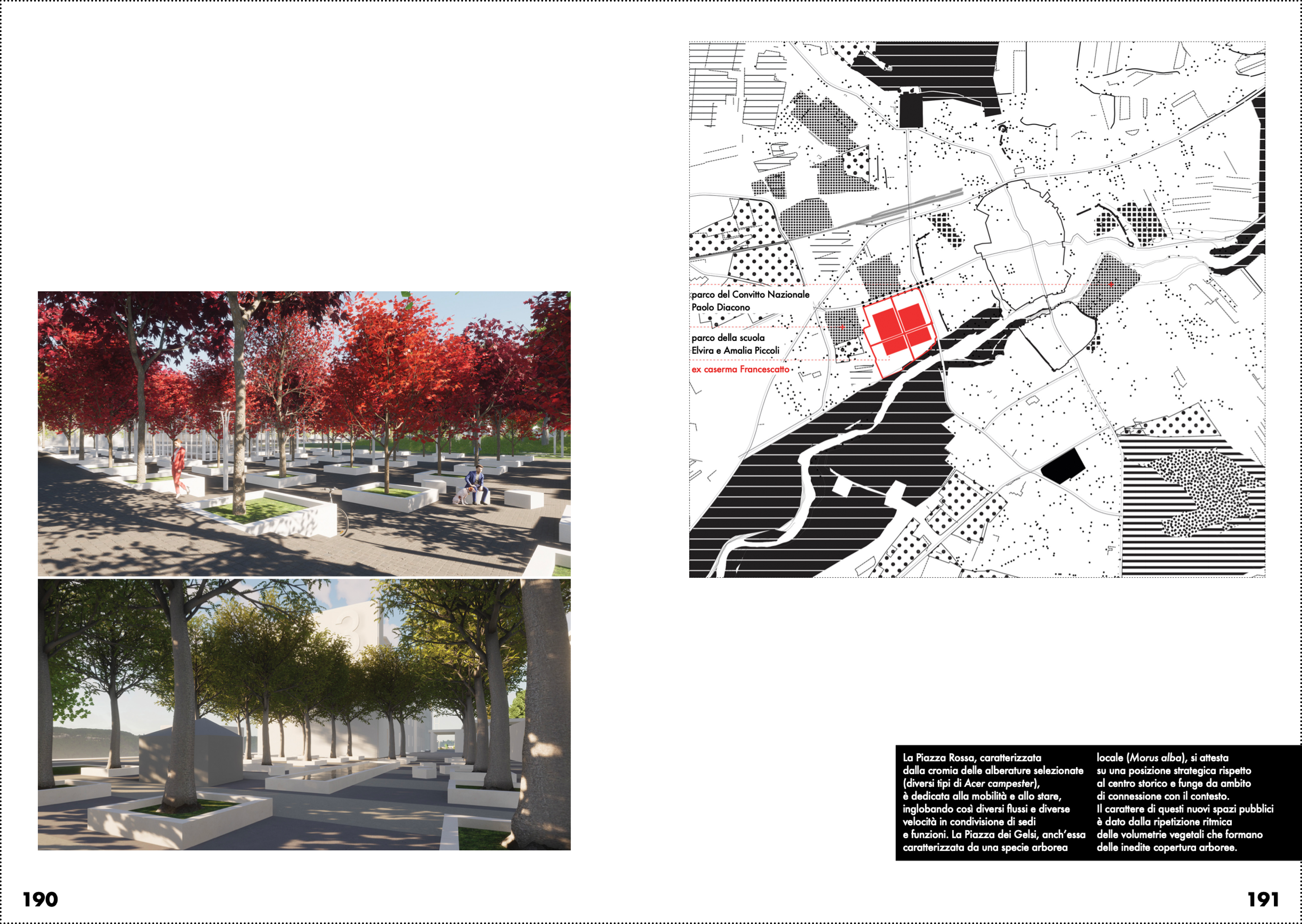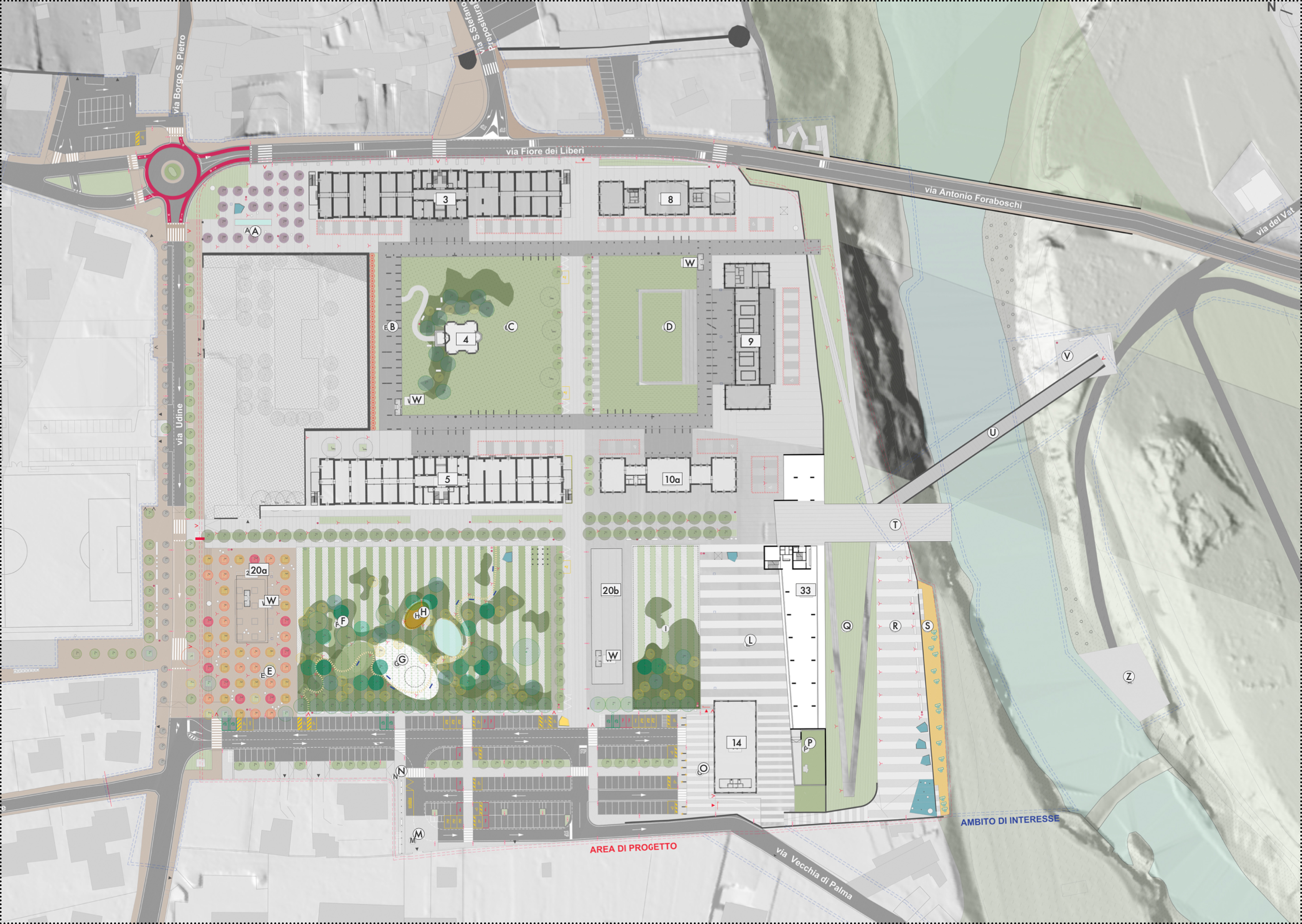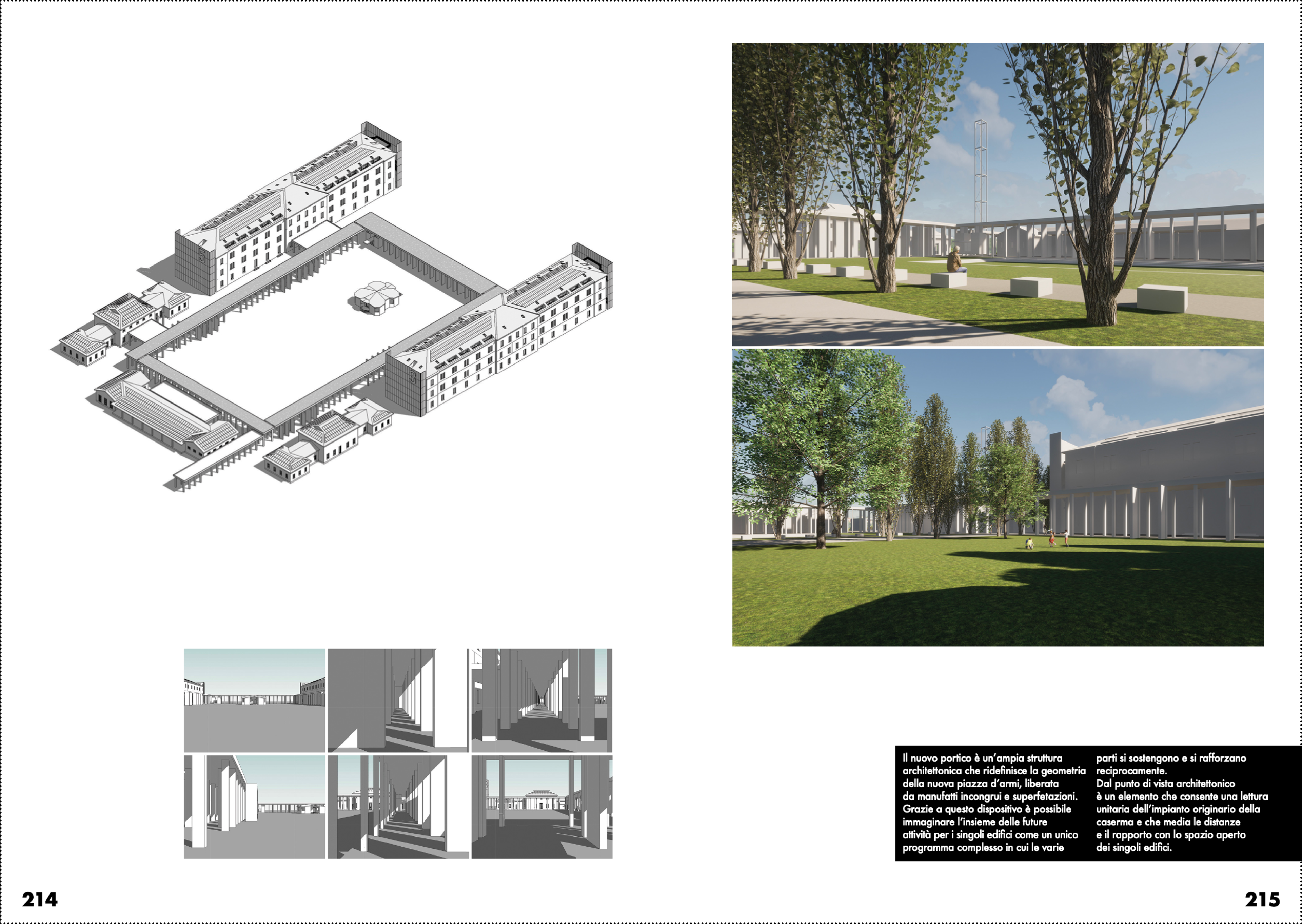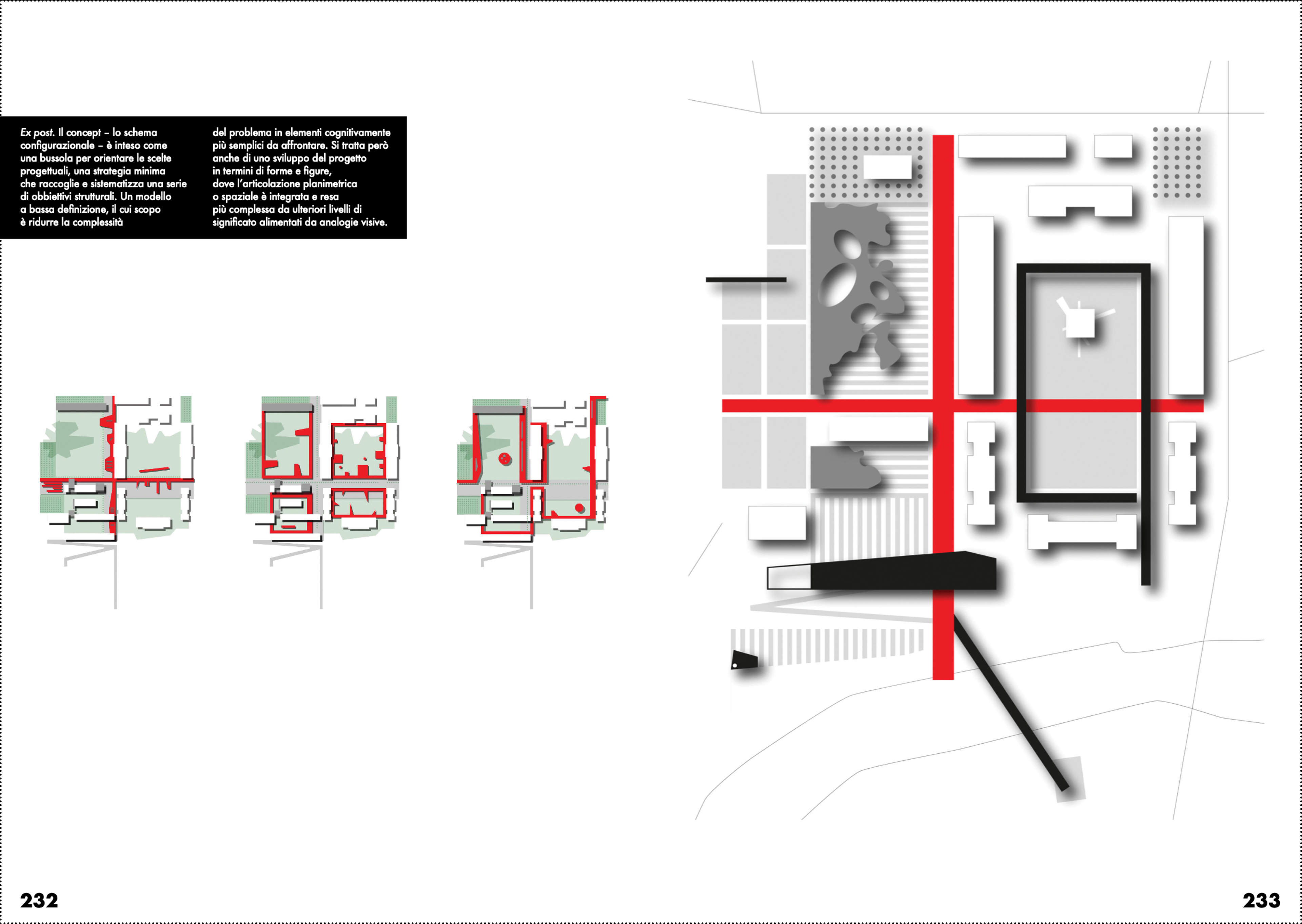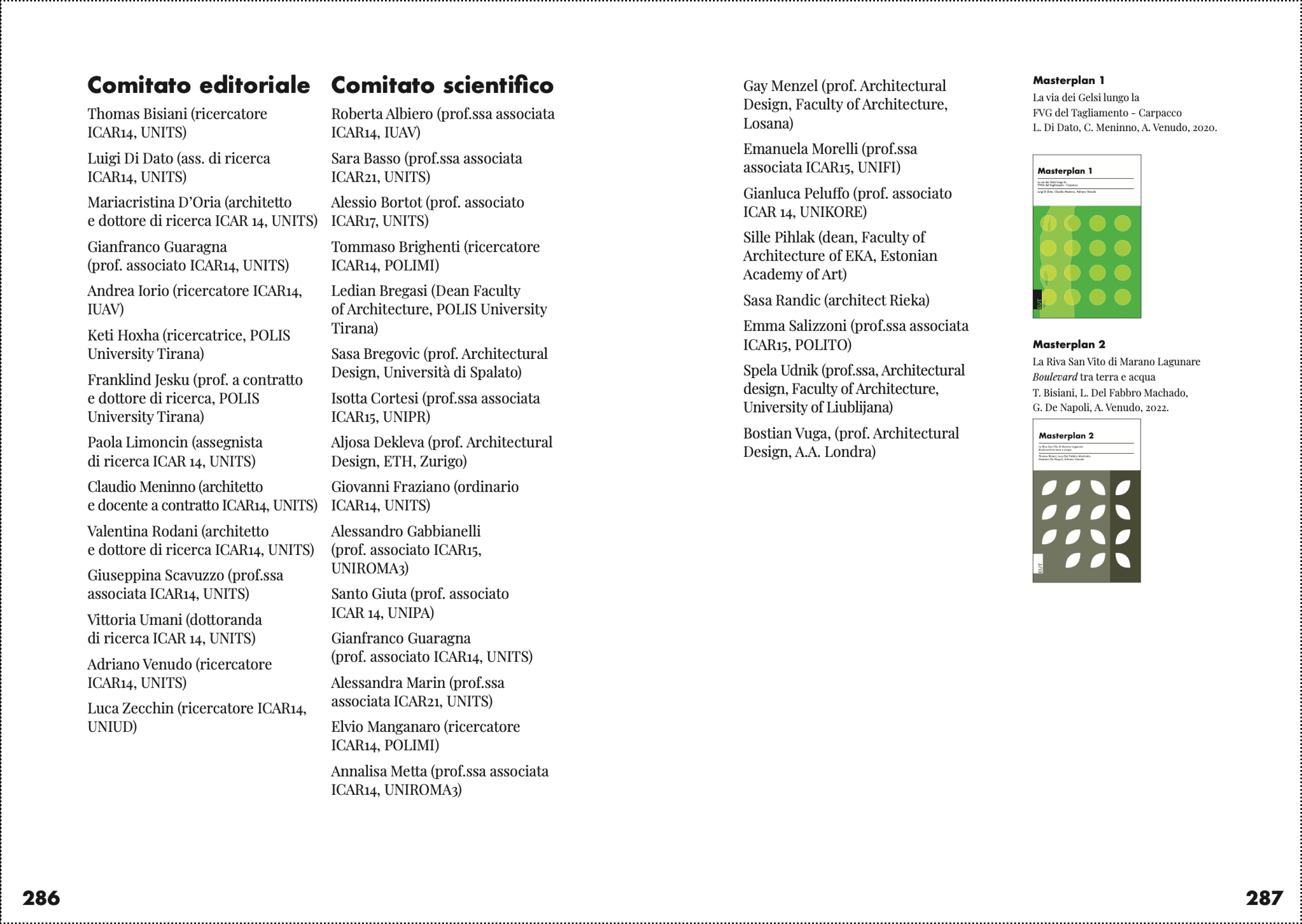masterplan 03
- riscritture tra fiume, città e storia per l'ex caserma francescatto a Cividale del Friuli -

type: book editing and article
autors: Thomas Bisiani, Luigi Di Dato, Giovanni Fraziano, Claudio Meninno, Adriano Venudo
contributors: Nicol Di Bella, Gianfranco Dilillo, Mariacristina D'Oria, Davide Gurtner, Špela Hudnik, Gianluca Peluffo, Valentina Rodani
layout and editing: Mariacristina D'Oria
title contribution: Meanwhile-places. Intermezzi transitori della trasformazione urbana
year: 2023
published by: EUT Edizioni Universitarie Triestine
key words: traumatized and traumatizing agencies, transitional space-time fragments, Cedric Price
link: see more
The complexity of the research, in its operational and theoretical aspects, is amply justified by the specific nature of the region in which it is carried out. The subject of disused barracks is, in fact, particularly relevant in Friuli Venezia Giulia, the most militarised region in Italy, due to its strategic position concerning the Iron Curtain that divided Europe from north to south until 1990. Years from this, profound changes developed in the geopolitical order of central Europe, and with these, a significant reduction of the defense system in north-eastern Italy with the dismantling of numerous sites, which progressively passed into the hands of local administrations. This resulted in casuistry of situations that presuppose the development, transformation, and recovery of large containers or even large urban complexes by small Administrations, small towns within which the case being studied here fits, which, in the face of ample possibilities in the future, also poses problems that are difficult to solve by subjects that often do not have the forces nor the resources to maximize the benefits obtainable. The research presented in this publication, concerning the reuse of the former Francescatto barracks in Cividale del Friuli, accurately detects these problems, offering a methodological and modeling response capable of going beyond a very partial and conceptually limited framework of experience to date. Transforming a problem into a resource, into an extraordinary opportunity for improvement, for development, for zero-cube growth of the city derives from a need for conversion and reuse, was considered not so much an objective, but paradoxically a constraint, an instance recalled and acknowledged directly by the territory, that territory made up of small towns in which the opportunity is given by the ample endowment of spaces, buildings, equipment, and surfaces left free, and in this specific case, placed in direct continuity with the historic center of Cividale del Friuli. Based on this objective, the so-called 'Francescatto Decalogue' was drafted as an opening project, then shared: a list of themes, strategies, and objectives that, guiding the hypothesis of transformation and reuse, not only progressively fed the framework of transformations, but also supported a broad theoretical reflection extended to the Administration and citizenship. The decalogue, divided into conceptual and operational areas, concerns the themes that characterize them (urban relations, strategy, time, first entry, demolitions, the possibilities of sustainable reuse and recovery of the existing building stock, the new endowment of green and open spaces, mobility and levels of accessibility and internal and external connection), as well as the purely functional aspects, use and sizing, the subject of transformation and recovery (spaces and equipment for leisure time, tourism and sport, buildings dedicated to culture and educational and exhibition facilities, the new system of accommodation and catering, spaces and equipment for associations and the community) and finally, to consolidate the reuse program, buildings for the tertiary sector and rare functions to be included in a broader urban and territorial perspective.
